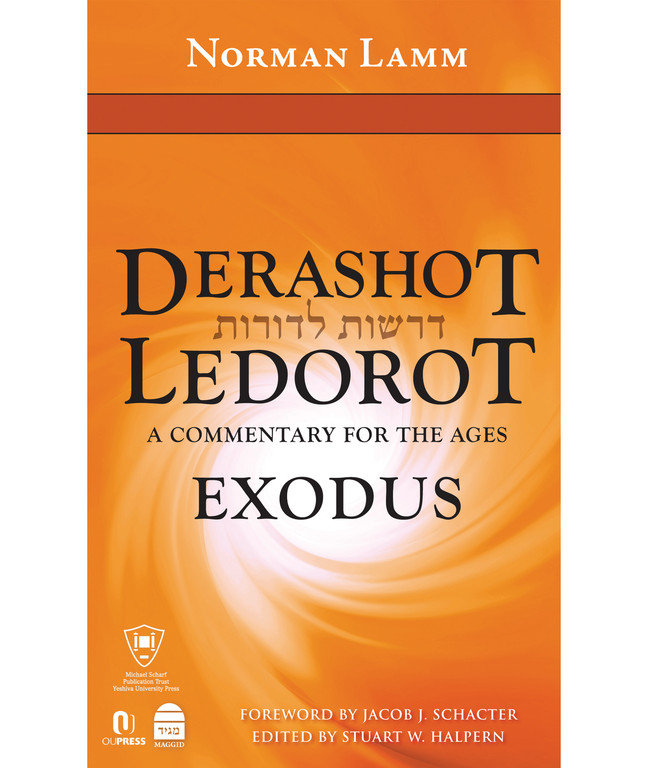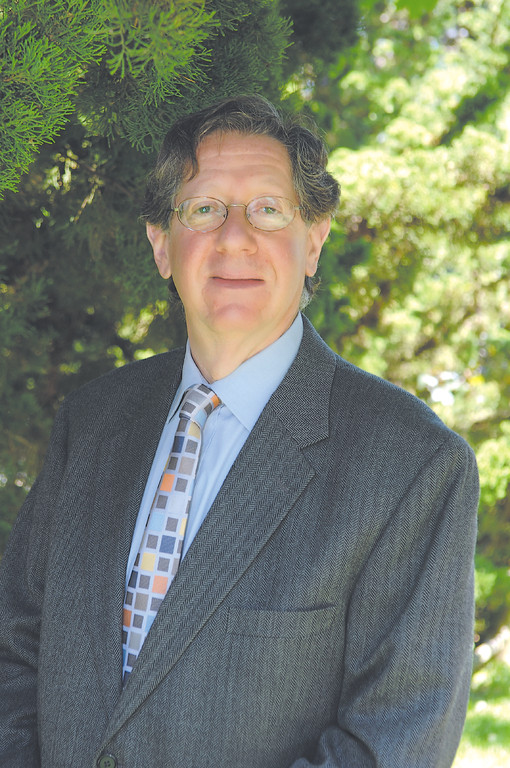Exodus experienced in Rabbi Lamm’s commentary
I have to thank my long time friend, Danny Levine, proprietor of America’s oldest family-owned Jewish book store, J. Levine and Co., for bringing to my attention the recently released “Derashot Ledorot: A Commentary for the Ages, Exodus” [Maggid Books, 2013] by Rabbi Norman Lamm. This second volume Bible sermons is a most eloquent work going back to over a half century of Rabbi Lamm’s rabbinical career at Manhattan’s The Jewish Center.
Timed to this year’s public readings from the Book of Exodus, this work contains some of Rabbi Lamm’s most learned divrei Torah in a parlance that is keyed to the ears and minds of the modern Jew.
By way of example, from Parashat Teruma, we read an essay titled, “Chutzpah — A Religious Analysis.” Rabbi Lamm begins with the following definition, by his learned lights, of the term, chutzpah:
“What is chutzpah? It is a universal quality, but a uniquely Jewish word. It is essentially untranslatable. You might say: boldness, effrontery, arrogance. It is all these things but more, too. Chutzpah, a great sage of the Talmud once said is, ‘kingship without a crown’; it is authoritativeness without authority, dominion without dignity, ruling without right, arrogance without warrant, dogmatic opinionation without basis — in short, a man acting the part of a king when he has never been entitled to the crown.” Surely, we all know of such people, whose self-righteousness guides them to so ruinous a path.
Rabbi Lamm elaborates further on multiple meanings and applications for the term, chutzpah. Consider the following, referenced from the Yom Kippur’s liturgy of Al Chet:
“Now let us proceed to a further analysis of this objectionable aspect of chutzpah called azat panim. Why should Judaism place so much weight on it? Why, in the very confession of the greatest sins do we deny that we are guilty of this one fault?” Rabbi Lamm continues on sourcing halachic works concluding with the absence of faith that people of chutzpah have as part of their personal mental baggage, linking this further to synagogue demeanor both in terms of congregant and shul leadership.
This essay was written and delivered on Feb. 2, 1957, in the context of the reading of the episode of the building of the Mishkan. Surely this reads as a long overdue mussar (ethics) missive for all to take heed of to this very day.
In another essay, Rabbi Lamm has this to say that serves as a mussar schmooze (lecture) for all to take heed of:
“The Orthodox Jew cannot afford to react with the same superficiality and placid serenity with which he conducted his religious life a generation or two ago. What is required of us, is a new level of intensity, a new ‘leap of action,’ a commitment of every fiber of our being to the great and holy enterprise of Jewish living, a new paean of praise to the Almighty in which there will participate every aspect of our being — intellectual, emotional, charitable, actional.” Please note that these remarks, keyed to Parashat Bo, were spoken on Feb. 2, 1963.
On the ideological flip side, we witnessed not too long ago, the publication of an English translation from the works of “Rebbe Nachman’s Torah — Exodus-Leviticus” [Breslov Research Institute]. This is a very humane centered commentary that demonstrates the down to earth approach taken by Reb Nachman to our sacred writ. Please note the following:
“Aaron was the leader of the Jews in Egypt during Moses’ absence. Yet when G-d told him that Moses would now take over leadership, Aaron went to greet Moses with great joy. He humbled himself before Moses and willingly passed on the mantle of leadership. Through his action, Aaron showed that he was a true leader, one who had the best interests of his people at heart.”
Contrast this observation to Rabbi Lamm’s take concerning chutzpah. Surely a lesson can be learned from both, stemming from the basic morality that one can glean from the actions that the players act upon in each case. Such is the glory of our Torah, and of those both past and present, to teach us their lessons and serve as guides to our conduct.
Last, a brief note is made of a new translation and adaptation of several chassidic commentaries to the Chumash entitled, “Speaking Torah: Spiritual teachings from around the Maggid’s Table” by Rabbi Arthur Green, [Jewish Lights, 2013].
This bi-lingual two volume set features such classical commentators as, the Kedushat Levi, Ohr Hameir, Me’or Eynayim, Noam Elimelech, Ma’ayan Ha-Chochmah, Mevasser Tzedek, and the Ohr Hachayim. This is a good work to consult for those who are just beginning to learn of the methods of Chassidic Torah commentary, both in the original, and in translation.
Columnist@TheJewishStar.com

 60.0°,
Mostly Cloudy
60.0°,
Mostly Cloudy 







